"Qingbei and Gourd" PPT courseware Simple campus recruitment activity planning plan summary enterprise and institution recruitment publicity lecture PPT template is a general PPT template for business post competition provided by the manuscript PPT, simple campus recruitment activity planning plan summary enterprise and institution recruitment promotion Lecture PPT template, you can edit and modify the text and pictures in the source file by downloading the source file. If you want more exquisite business PPT templates, you can come to grid resource. Doug resource PPT, massive PPT template slide material download, we only make high-quality PPT templates!
| 文件名 如何下载使用 | 下载次数 | Download Points | 下载地址 |
|---|---|---|---|
| "Qingbei and Gourd" PPT... | 17250次 | 0.00 | Free Download |
Tips: If you open the template and feel that it is not suitable for all your needs, you can search for related content "Qingbei and Gourd" PPT courseware is enough.
How to use the Windows system template
Directly decompress the file and use it with office or wps
How to use the Mac system template
Directly decompress the file and use it Office or wps can be used
Related reading
For more detailed PPT-related tutorials and font tutorials, you can view: Click to see
How to create a high-quality technological sense PPT? 4 ways to share the bottom of the box
Notice
Do not download in WeChat, Zhihu, QQ, built-in browsers, please use mobile browsers to download! If you are a mobile phone user, please download it on your computer!
1. The manuscript PPT is only for study and reference, please delete it 24 hours after downloading.
2. If the resource involves your legitimate rights and interests, delete it immediately.
3. Contact information: service@daogebangong.com
"Qingbei and Gourd" PPT courseware, due to usage restrictions, it is only for personal study and reference use. For commercial use, please go to the relevant official website for authorization.
(Personal non-commercial use refers to the use of this font to complete the display of personal works, including but not limited to the design of personal papers, resumes, etc.)

Related reading
For more detailed PPT-related tutorials and font tutorials, you can view:Please click to see


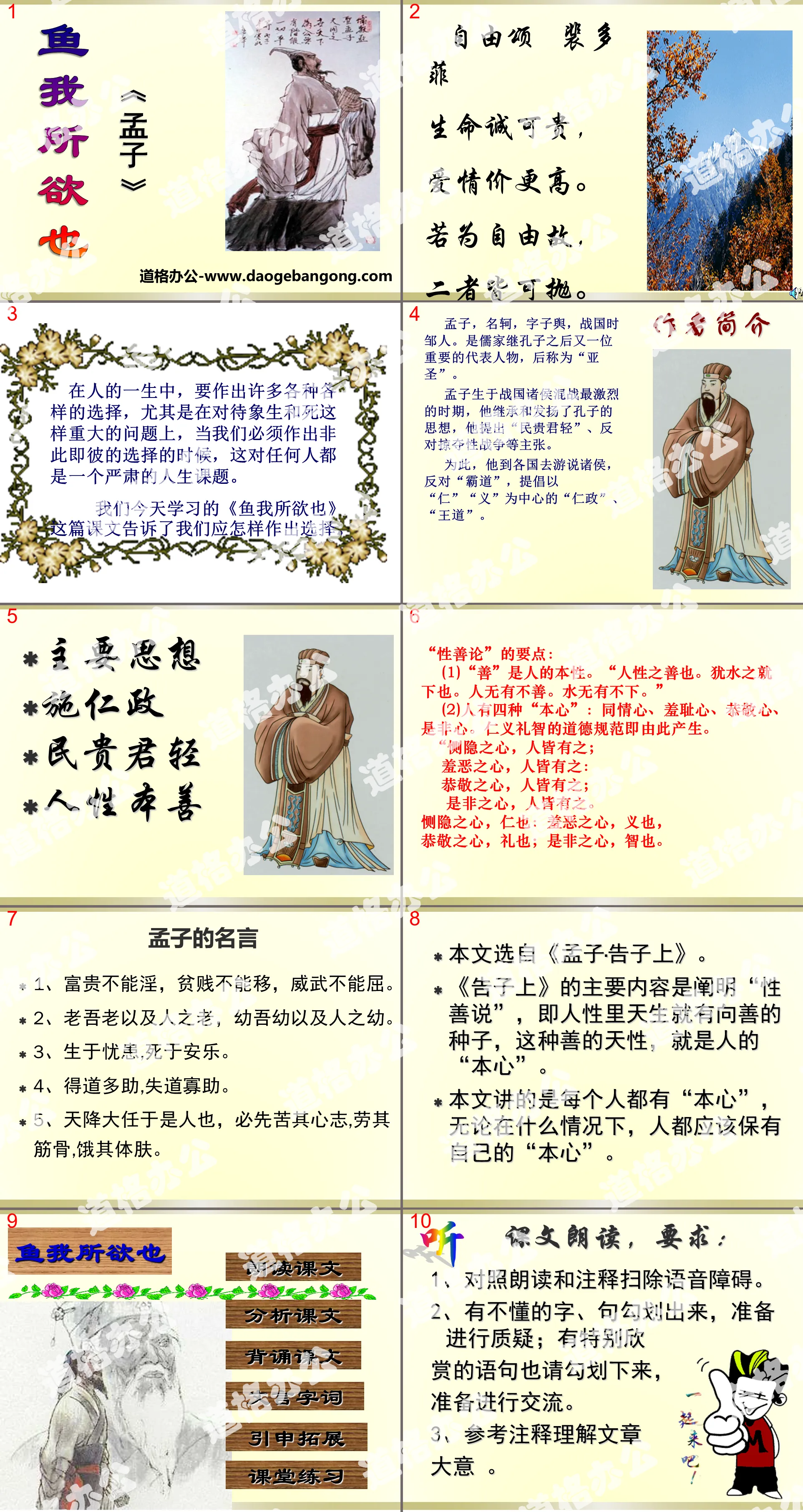
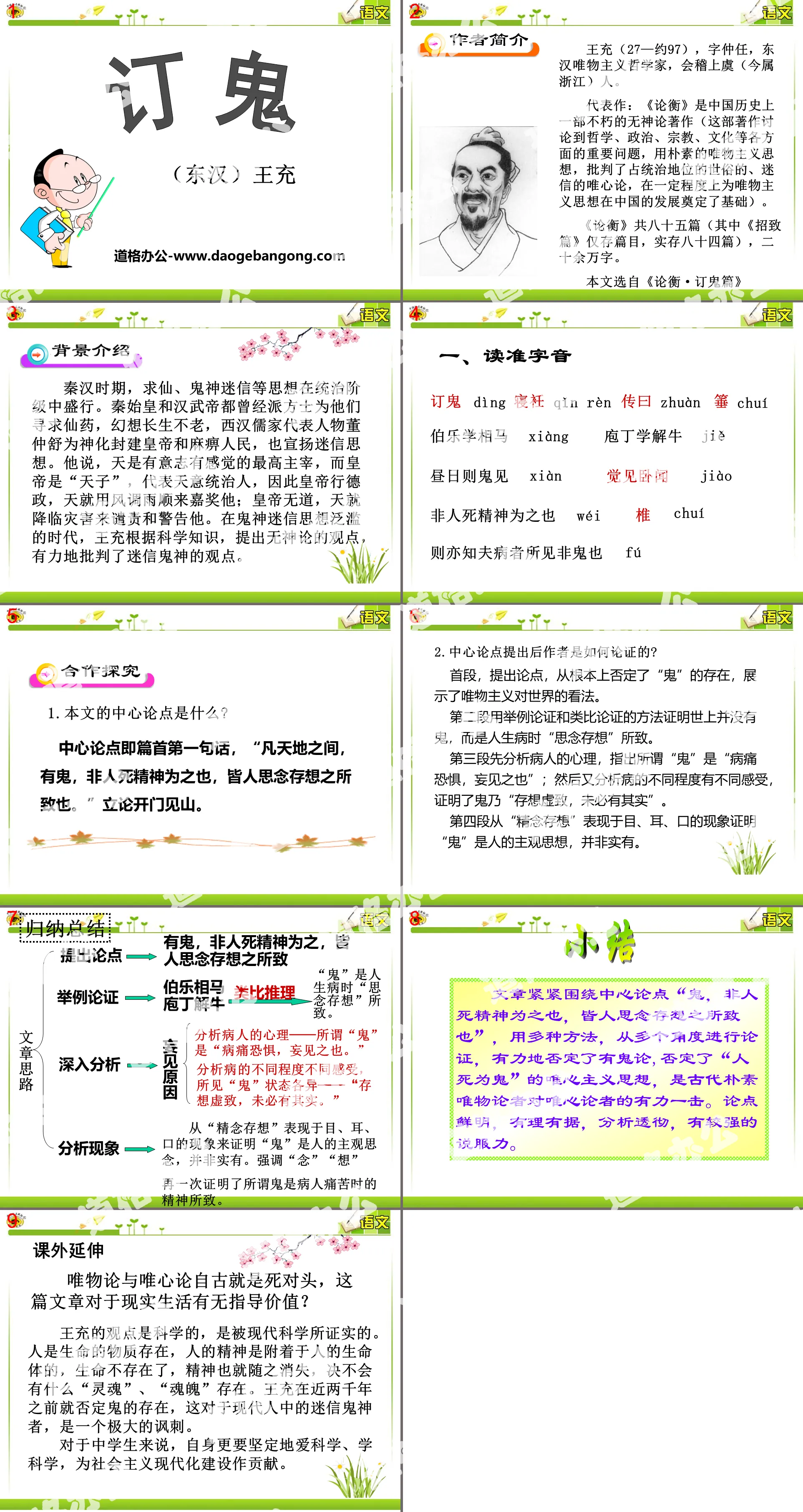


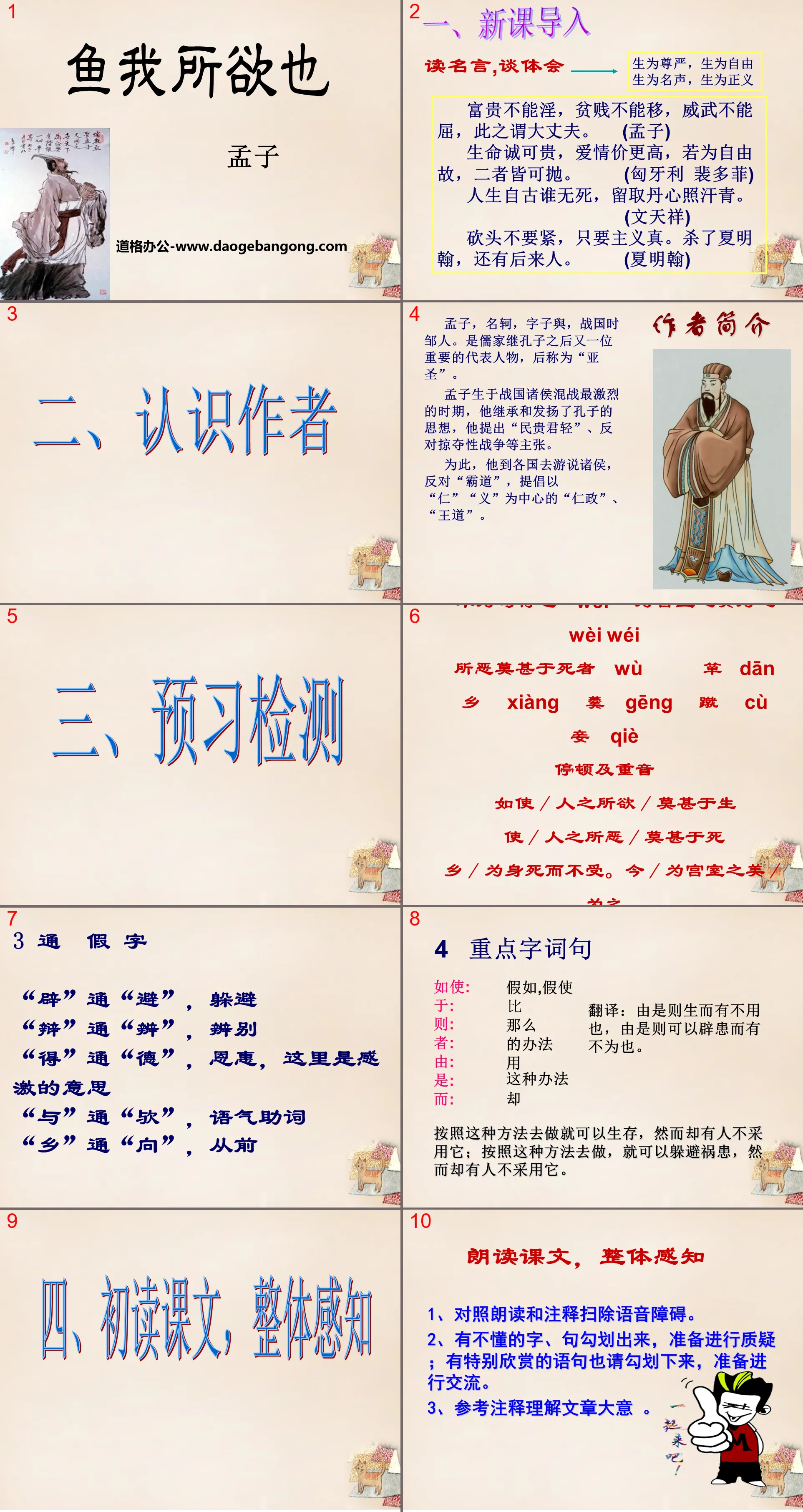
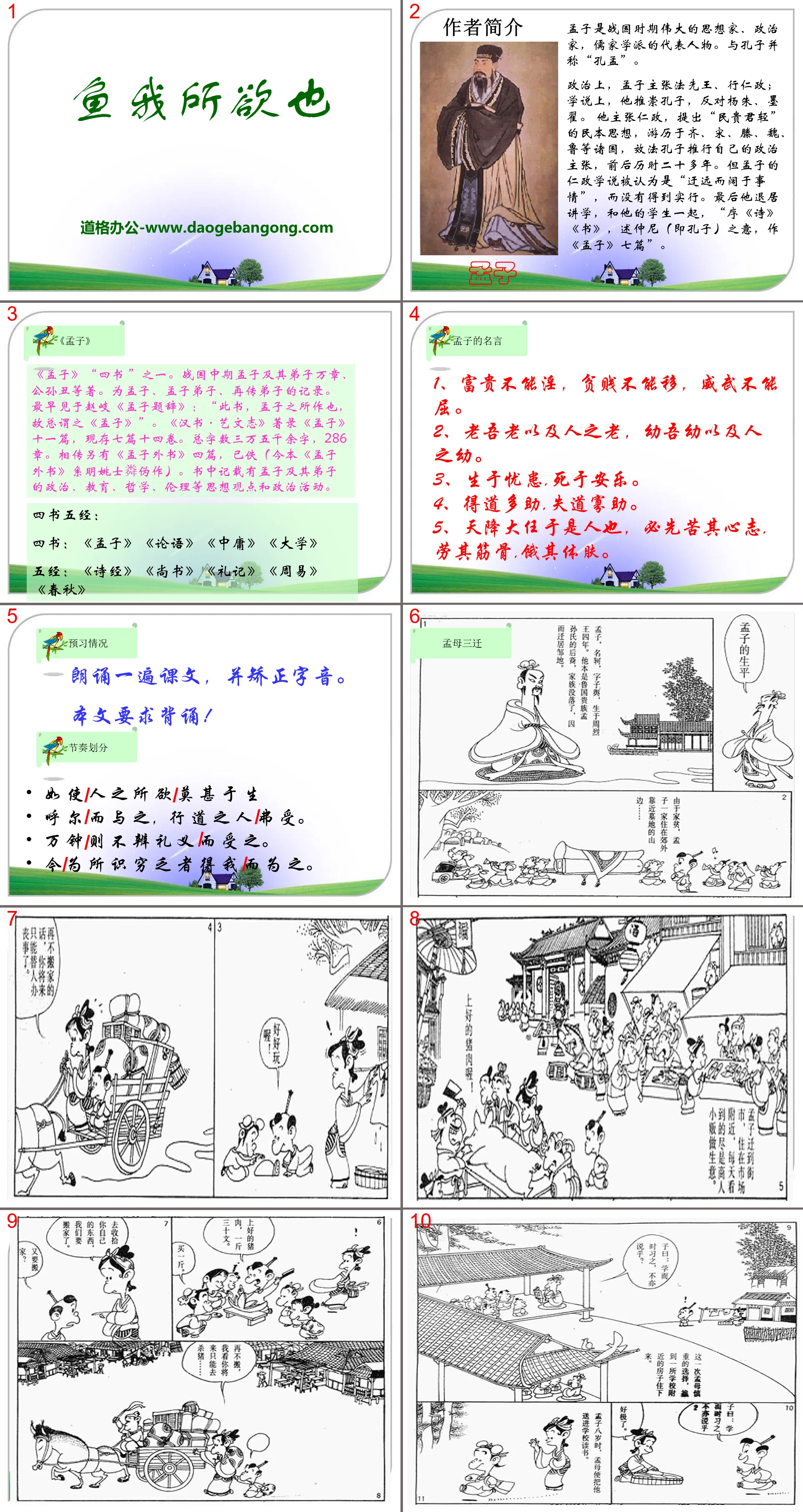
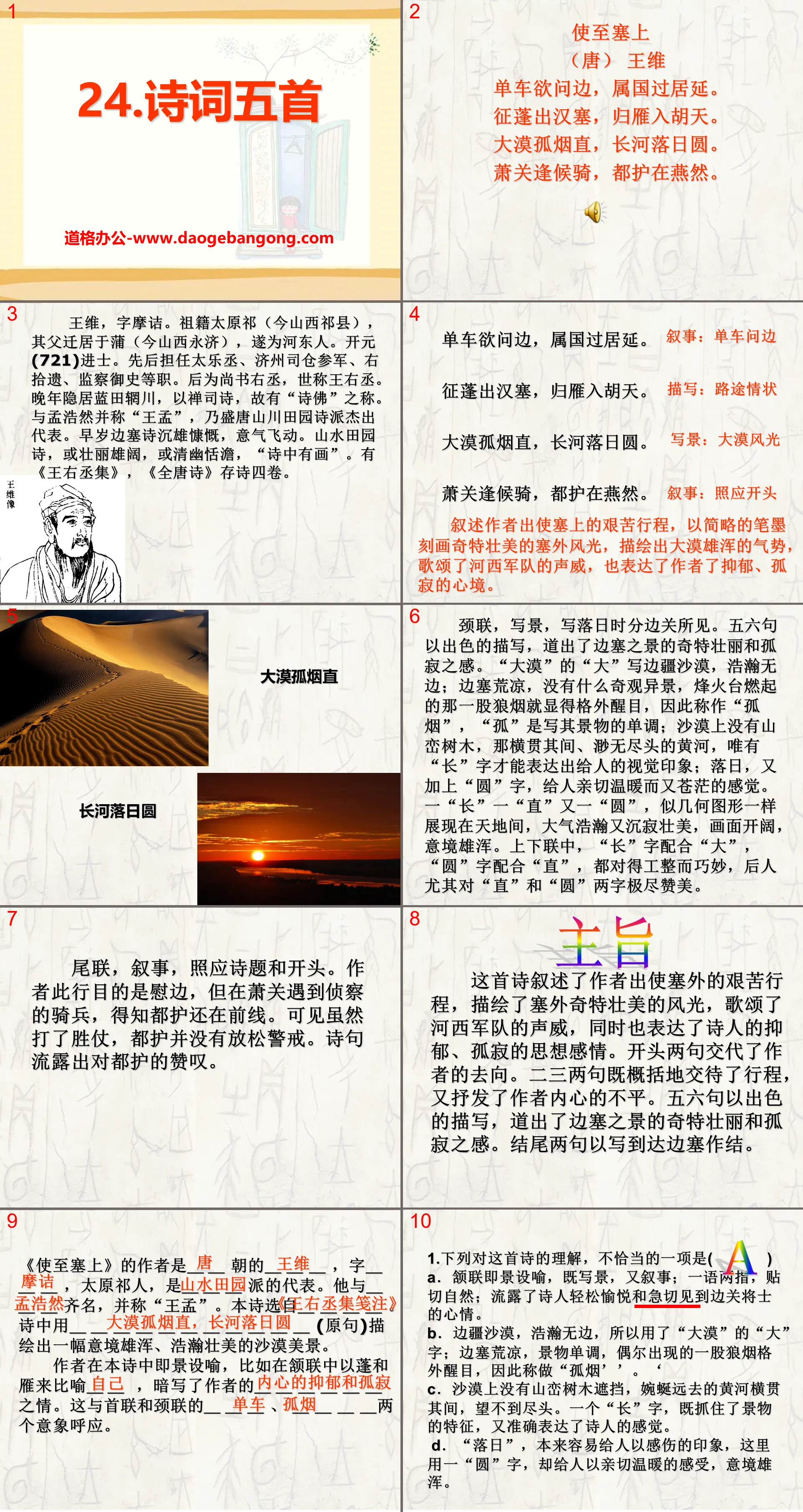
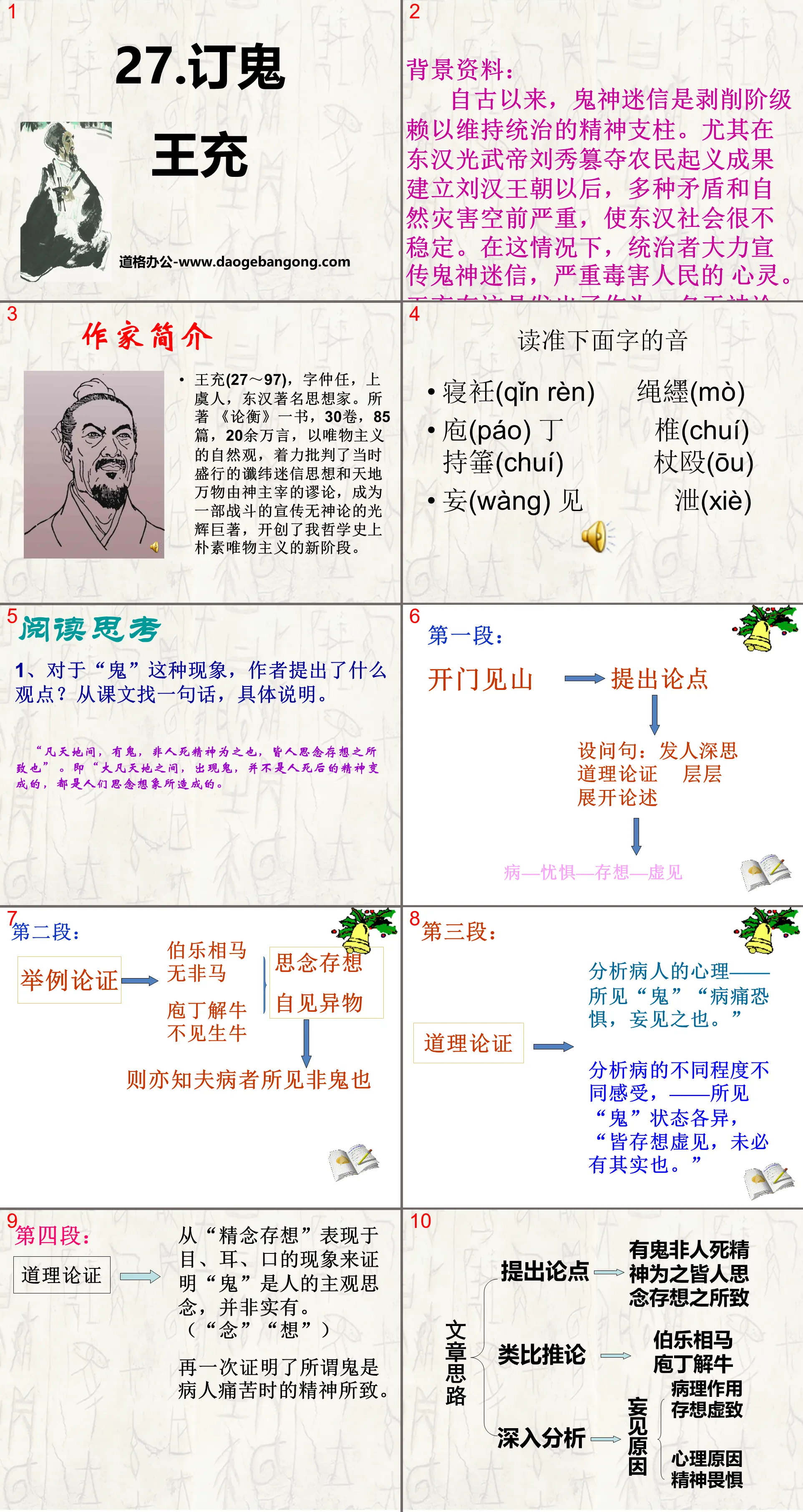
Authoritative PPT Summary
"Qingbei and Gourd" PPT courseware
There is a road to the mountain of books
1. Get closer to the author
Shiga Naoya (1883~1971), Japanese novelist. He was born into a family that was first a feudal bureaucrat and then an industrial capitalist. At the age of 17, he participated in the Shirakaba School literary activities and became one of the representative writers of the "Shirakaba School". He is known as the "God of Novel" in Japan.
2. Structural diagram
Beginning: Qinghei loves gourds
Development Kiyobei bought a good gourd
Climax: The teacher confiscates the gourd and the father smashes it
Ending: The gourd is sold at a high price
Epilogue: Kiyobei changes his hobbies, respects the child's personality, and allows his personality to develop freely.
3. Theme explanation
By writing the story of Seibei's obsession with gourds, but being deprived of this hobby by his teachers and parents, this article criticizes the practice of brutally killing the individuality of teenagers and calls for respecting children's individuality and allowing their individuality to develop freely.
4. focus
Teacher 1: What description methods did the author use when creating the image of Qing Bingwei? Does it reflect what kind of child Kiyohei is?
Sheng Jia: When portraying the image of Qingbei, the author mainly used action description, language description, facial expression description, and psychological description. Some of these descriptions are very detailed and are detailed descriptions.
Student B: From these descriptions, it is shown that Qinghei is a child who is ingenious, intelligent and has strong curiosity.
Division 2: The gourd that Qingbei bought for a dime was eventually sold by the antique dealer for a high price of 600 yuan. This shows what? How does this result contrast with the previous content?
Accumulate and apply
1. Write Chinese characters according to pinyin or add braille phonetic notation.
热zhōng(心) dorsuō(妦) guāi(good) feel
gleaming (yì) trembling (jīng) hē chì
2. Which of the following is incorrectly written ( )
A. Unable to commit suicide, nagging, narrow-minded
B. Tireless, breathless, interference
C. Suck it up, look sideways and vertically, take a breath
D. sneaky, stupid, porch
Smart reading
[Wisdom Tips] To summarize the main idea and grasp the author's emotions, the following methods are generally used:
1. Discover the meaning of the title. The title is the "eye" of the article. Through the information conveyed by the title, the author's thoughts, feelings and tendencies can be captured, and the author's writing intention can be grasped.
2. Explore the beginning and end. Some articles get straight to the point and speak directly from the heart; some articles highlight the topic at the end and reveal their ambitions at the end. Exploring the beginning and end of the article can summarize the main idea of the article.
3. Understand key sentences. The key sentences here refer to some arguments and lyrical sentences in the article. The author uses them to express his opinions and emotions, so these sentences often reflect the main idea of the article.
4. Pay attention to repeated words and phrases. The words and phrases that appear repeatedly in an article are the content that the author emphasizes. This content is often related to the main theme of the article, and some are even the center.
5. Combined with writing background. The writing background is often the environment in which the article is produced. It tells us the origin of the work and the author's intention in writing, which often helps us grasp the main idea of the article.
Keywords: Qingbei and the Calabash teaching courseware, Chinese version of the ninth grade Chinese courseware, volume 1, ninth grade Chinese slide courseware download, Qingbei and the Calabash PPT courseware download, .ppt format
For more information about the PPT courseware "Seibei and the Gourd", please click the "Seibei and the Gourd" ppt tag.
"Qingbei and Gourd" PPT courseware 2:
"Qingbei and Gourd" PPT courseware 2 Teaching objectives: 1. Understand the content and theme of the work. 2. Understand the relationship between the story and the plot, and understand the ways and effects of the plot; 3. Grasp the basic pattern of the plot of the novel, and experience the swings in the plot and the ups and downs at the end..